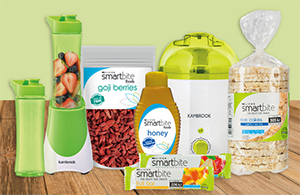Watching children at birthday parties, stuffing their little faces with sweet treats and racing about until they’re ragged, it’s easy to blame the effect of sugar for their hyperactivity. But is it really what fuels hyperactive behaviour?
Not according to most scientific studies. Yet somehow the myth persists. It began in the 1970s, when allergist Dr Benjamin Feingold advocated eliminating food additives such as artificial flavours and colourants from children’s diets, as these might lead to hyperactivity. He made no mention of sugar, but it came to be seen as an additive because some thought it influenced behaviour.
Small early studies appeared to support this. One at Yale University found a sugar-loaded breakfast affected attention span, compared to having no breakfast or one of whole grain cereal. Another study found children fed sugar had higher adrenaline levels, which led to similar symptoms to hyperactivity.
But other studies found differently. One published in 1994 in the New England Journal of Medicine, in which children were given either sugar (sucrose) or the non-nutritive artificial sweeteners, aspartame or saccharin, for three weeks, recorded “no significant differences among the three diets.”
And a review of 16 studies in the Journal of the American Medical Association in 1995 concluded that “sugar does not affect the behaviour or cognitive performance of children.”
Why does this sugar myth persist?
The answer may lie in our expectations. According to a study in the Journal of Abnormal Child Psychology in 1994, parents who believe sugar affects children’s behaviour are more inclined to see them as hyperactive when they think they’ve consumed sugary foods or drinks. And these are most plentiful at parties and other events where children are likely to be excited and act out.
Genuine hyperactivity such as attention deficit hyperactivity disorder (ADHD) is associated with inattention, constant restlessness, impulsive behaviour, emotional disturbances, learning disorders and sleep problems. If you think your child could have this, speak to your health professional for a proper assessment.
Even if your child has ADHD, a 2011 review by researchers from the Chicago Children’s Memorial Hospital of studies on diets and supplements showed limited evidence that these diets and supplements actually help alleviate the condition.
But anecdotal accounts abound, and the Attention Deficit and Hyperactivity Support Group of Southern Africa (ADHASA) advises avoiding colourants, preservatives and other additives, and transfats. Also, caffeine, white flour and, yes, sugar, some say, cause spikes and dips in blood sugar levels. ADHASA advocates professional testing for food sensitivities to get to the root of an individual child's reaction to foodstuffs.
Don’t eliminate sugar entirely
“Too much sugar can fuel obesity, cavities and diabetes, but it’s not necessary to eliminate it entirely,” says registered dietician Zelda Ackerman, a spokesperson for the Association for Dietetics in South Africa. “A small amount of sugar in our diets can’t do harm – it’s excessive amounts that may cause major health problems. It’s virtually impossible to exclude all sugar, as most processed foods contain added sugar. Aim for whole foods and limit processed foods as much as possible.”
“South African dietary guidelines recommend that free sugar (sugar added by the manufacturer, cook or consumer, and naturally present in fruit juices and syrups) should not make up more than 5% of the kilojoules consumed each day – that’s a maximum of about five teaspoons for adults and three teaspoons for children,” adds Ackerman.
But many foods contain hidden sugar, so read labels carefully. A typical ‘healthy’ toddler diet can easily contain more than 15 teaspoons of sugar a day if it includes the likes of sweetened breakfast cereal, flavoured yoghurt, fruit juice and a muffin, she warns.
It’s also not advisable to switch children to artificial sweeteners. The US Food & Drug Administration (FDA) has reaffirmed that aspartame is safe for both adults and children, but in 2010 the British Food Standards Agency launched an investigation into possible side effects, noting any effects would be stronger for children as they’re smaller. So it's best to err on the side of caution, say the experts.
FEATURED PRODUCT: Smartbite food & snacks
Make use of the convenience of online shopping to try out our Smartbite range of healthy food and snacks, and even appliances.
IMAGE CREDIT: 123rf.com


